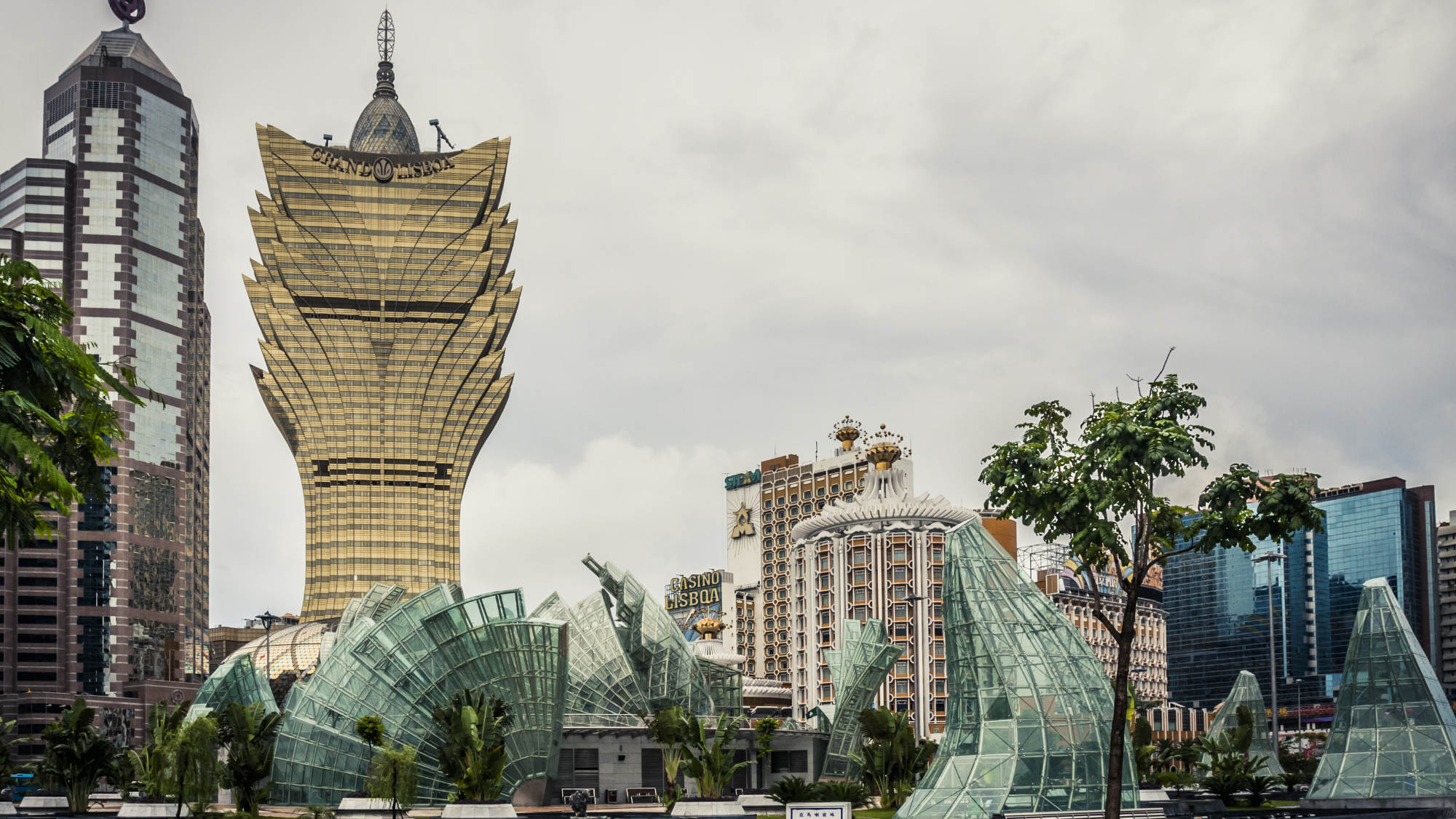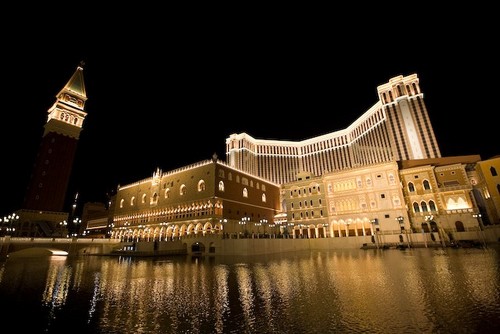China could be on the verge of progressively legalizing gambling activities in parts of the country besides Hong Kong and Macau over the next 10 years, said CEO and owner of Global Betting & Gaming Consultants, Warwick Bartlett, during an online conference organized by the Global Gaming Expo (G2E) Asia last week.
“I believe that China will, within 10 years, legalize gambling within their own borders. The reason I believe this will happen is because you can’t continually criminalize ordinary people’s behavior,” said Bartlett.
“The British government discovered that in 1963 when they legalized gambling and other countries slowly followed,” Bartlett added. “It makes sense because customers are better protected and you can tax the revenue and it creates a whole new industry.”
According to Bartlett, what happens now is part of an “agonizing process very similar to what happened in the U.S. a few years ago. They are preventing payment solutions to the Internet and they are disrupting the process of gambling every way possible.”
He notes that after a while, Chinese authorities will realize that such measures do not work and they will then move towards partial legalization. At this point, he also believes that horse racing activities and The Hong Kong Jockey Club (HKJC) will have an important role to play.
Bartlett anticipates that Chinese authorities will potentially grant the HKJC a franchise in the mainland.
“The richest half percent of people in the world are the owners of horses and they are [also] the most influential people. And this will be also a way for China to exercise its influence over these people,” he predicted.
After gaining trust in the system, China will expand locations where racecourses have been built, developing hotels and other venues beside racetracks until they reach the point where they fully legalize all gambling activities.
Considered the father of modern gambling in China, Ho had a four-decade monopoly on Macau’s casinos Stanley Ho in 2008. The billionaire is credited with transforming Macau into the world’s. History of gambling in Macau. In 1850, gambling was legalized in Macau, the so-called “Monte Carlo of the Orient” and “Las Vegas of the East”, in an attempt to generate revenues for the Portuguese government, introducing a licensing system for the Chinese gambling houses (fantan houses). The Grand Lisboa Hotel in Macau, China. Anthony Kwan/Getty Images Gambling on pent-up demand and hopes that the big rollers would return, analysts at J.P. Morgan made a bet on the gambling capital. Macau: Gambling Laws and Regulations 2021. ICLG - Gambling Laws and Regulations - Macau covers common issues in gambling laws and regulations – including relevant authorities and legislation, application for a licence, licence restrictions, digital media, enforcement and liability – in 37 jurisdictions.
Gambling in China is illegal under Chinese law[1] and has been officially outlawed since the Communist Party took power in 1949.[2] Any form of gambling by Chinese citizens, including online-gambling, gambling overseas, opening casinos overseas to attract citizens of China as primary customers, is considered illegal.[3] In practice however, Chinese citizens participate in state-run lotteries, regularly travel to legal gambling centers overseas or in the special administrative regions of Hong Kong and Macau and access gaming through offshore based proxy betting and online gambling companies.
Mainland China[edit]

The Chinese government operates two lotteries: the Welfare Lottery and the Sports Lottery set up in 1987 and 1994 respectively. The Chinese government does not legally consider the lotteries a form of gambling.[4] Illegal gambling in China remains common, including unofficial lotteries, clandestine casinos, and betting in games such as mahjong and various card games. In 2010, The Daily Telegraph (UK) reported that an estimated one trillion yuan are wagered in illegal gambling every year in China. Problem gambling exists in the country, and may be more prevalent than in countries with legalized gambling.[1]Online gambling is another outlet for illegal gambling in the country.[4]
Various attempts have been made to establish legal casinos in mainland China, although these have been unsuccessful.
In June 2018, the Chinese Government banned all online poker applications. App stores had to remove all poker related applications, and the promotion of poker in general via all social media channels in China (Wechat, Weibo) became forbidden.[5]
Hong Kong[edit]
While some aspects of mainland Chinese law apply in Hong Kong, certain forms of gambling are legal and regulated in Hong Kong. The Law of Hong Kong is based on English common law, having been a British territory until 1997. Gambling in Hong Kong has been regulated since 1977.[6] The Hong Kong Jockey Club organizes much of the legal betting in the region.
Macau[edit]
Gambling in Macau has been legal since the 1850s, when it was a Portuguese colony. The region has a history of gambling on traditional Chinese games. Gambling in Macau now primarily takes place in Western-style casinos; in 2007, Macau overtook the Las Vegas Strip in gaming revenues. As of 2016,[7] 38 casinos operate in Macau, and the region's annual gambling revenues exceed US$27.9 billion.[8]
Offshore gambling[edit]

Legal restrictions on onshore gambling in Mainland China have contributed to the growth of overseas and online gambling sites that cater to Chinese nationals. Integrated gaming resorts in Singapore, Australia, Korea, Vietnam and the Philippines welcome growing numbers of Chinese tourists.
Proxy betting[edit]
As in person visits to offshore gambling venues can be both time consuming and attract the attention of law enforcement, proxy betting has grown in popularity, especially for VIP clients wishing to discretely place high stakes bets. In proxy betting, clients communicate with staffers wearing headsets at baccarat tables in offshore casinos. Proxy betting was outlawed in Macau in 2016 and has never been permitted in Australia or Singapore casinos, but now accounts for 40 percent of the $1 billion VIP gaming market in the Philippines, according to brokerage CICC.[9]
Online gambling[edit]
Online gambling in Mainland China remains illegal, however internet traffic routed via VPNs, underground banking networks and payment platforms enable Mainland Chinese customers to access and remit funds to online gaming sites. According to 2019 estimates published in Economic Information Daily, an affiliate of state-owned news agency Xinhua, the annual amount bet through online gambling in the Mainland is more than one trillion yuan (US$145 billion), equivalent to nearly twice the annual income of China’s officially sanctioned lotteries.[10]
In the Philippines alone, where Philippine Offshore Gaming Operators (POGOs) can register and legally operate, over a three year period from 2016 at least 100,000 Chinese nationals were estimated to have moved to Manila to work for online gambling operators as marketing agents, tech support specialists and IT engineers to serve Mandarin-speaking clientele.[11] To side step restrictions on direct marketing of online gambling in Mainland Chinese print or social media, many online gaming sites seeking to attract Chinese customers have become shirt sponsors for English Premier League football teams. Dafabet’s sponsorship of Fulham FC and W88’s sponsorship of Wolverhampton Wanderers are just two examples of this trend.

Large betting sites like Bet365, BetPat & WilliamHill create mirror sites to bypass local controls as seen a list of how it works here SportsTalk.org in the Guardian it was commented at length that Chinese users can face jail.
See also[edit]
References[edit]
Macau China Gambling Age Chart

Macau China Gambling Age Limit
- ^ abEimer, David (9 January 2010). 'China's secret gambling problem'. Daily Telegraph. Shenyang. Retrieved 1 May 2015.
- ^'Rien ne va plus'. The Economist. 432 (9158): 25. 31 August 2019.
- ^'Remarks by Chinese Embassy Spokesperson on Issues of Chinese Citizens concerning Gambling in the Philippines'. Embassy of the People’s Republic of China in the Republic of the Philippines. 8 August 2019. Retrieved 9 August 2019.
- ^ abKalenyuk, Mary (7 November 2013). 'The bets are on for gambling in China'. The World of Chinese. Retrieved 7 April 2014.
- ^'Crackdown on online poker applications in China - Somuchpoker'. somuchpoker.com. Retrieved 2018-06-11.
- ^Deans, Rob (2001). 'Online Gambling: Changes to Hong Kong's Gambling Legislation'. Gaming Law Review. Mary Ann Liebert, Inc.5 (6): 555–560. doi:10.1089/109218801753336166.
- ^2016 Wynn 10-K
- ^'Macau Gaming Summary'. University of Nevada, Las Vegas Center for Gaming Research. Retrieved 7 April 2014.
- ^'China targets PH in offshore gambling crackdown'. Manila Bulletin. Bloomberg. 8 August 2019. Retrieved 11 August 2019.
- ^Master, Farah (9 July 2019). 'Chinese state media target Macau's Suncity in online gambling report'. Reuters. Retrieved 10 August 2019.
- ^Dancel, Raul (20 July 2019). 'Loan Sharks Feed Off Philippine Casino Boom'. The Straits Times. Retrieved 7 August 2019.
External links[edit]
- China Sports Lottery official website(in Chinese)